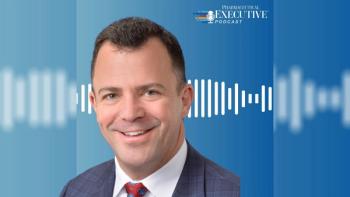
- Pharmaceutical Executive-09-01-2020
- Volume 40
- Issue 9
Sustainable Long-Term Planning
ESG objectives are integral to long-term biopharma strategy.
I learned that gravity is the weakest of the fundamental forces, but the one with the greatest reach; a minor consideration at small scales, but dominant in the universe at large. Sustainability is like that—the impact of our environmental, social, and governance (ESG) practices and policies are easy to set aside on a day-to-day basis, especially if we are focused on short-term financial outcomes. But these aspects of corporate performance have an outsized influence on the long-term health of a company, as reflected by a growing consensus that attending to non-financial performance with as much energy as financial performance tends to produce superior long-term results in both domains. Large investors and asset managers have been turning up the volume on this message, as we’ve discussed in previous columns, and CEOs and Boards are beginning to respond.
The global COVID-19 pandemic is another driver for long-term planning. The whole healthcare sector is being pressure-tested as we seek to respond not only with new technologies, but new and more effective business models. The regulatory climate and social expectations of our industry will evolve, and structural realignments will happen. Setting a long-term vision and strategy and communicating it effectively becomes a priority in the face of change.
Over a longer five-to-seven-year timeframe, the details of financial performance—front and center on a quarterly earnings call—become more difficult to talk about due to legal constraints on forward-looking statements and the practical limits of forecasting. At the same time, the elements of ESG strategy become more salient to investors and other stakeholders as markers for an effective long-term focus on value creation and risk management. A growing number of CEOs are frustrated by the lack of an appropriate platform for sharing their long-term vision, and setting context for the expanding universe of disclosure requirements and third-party ratings and rankings based on them.
So ESG considerations need to become an integral part of the long-term business planning and communication process. As a step toward addressing this challenge,
Biopharma interests have been part of the story since the beginning of CECP’s Strategic Investment Initiative (SII), the group responsible for producing the Forums. SII was launched by Alex Gorsky, chairman and CEO of Johnson & Johnson, who became an SII Advisory Board co-chair and was one of the first presenters, along with Bill McNabb, former chairman of Vanguard.Merck’s Ken Frazier and GlaxoSmithKline’s Emma Walmsley have also presented, and their experience will help guide the new Forum.
Our collaboration seeks to take the existing CEO Investor Forum model to the next level by focusing sharply on a single sector, and by combining the recently released Biopharma Investor ESG Communications Guidance,
To create a meaningful long-term plan, now or in the future, most companies also have to build or improve connections between their sustainability/ESG teams and other functions involved in setting and communicating corporate strategy and long-term plans.Business development, investor relations, risk management, and corporate communications all need to be part of the planning process.
Widening the scope of information used to assess long-term corporate performance, and expanding the time horizon considered, feels like a cultural maturation process. We’re learning to see and manage opportunities and externalities that have been overlooked in the past. The human population is growing and becoming more urban, demands for better healthcare are rising, and existential challenges are at hand. We have to think about corporate strategy and performance in a broader environmental and social context now. Including sustainability as a core part of strategic planning is an important step forward.
Sandor Schoichet, Director, Meridian Management Consultants, and Co-Founder of the Biopharma Sustainability Roundtable. He can be reached at
Articles in this issue
over 5 years ago
Our Launch-Time Menuover 5 years ago
Drug Launch: Winning the Evidence Battleover 5 years ago
COVID Causes Pharma Marketers to Watch TVover 5 years ago
Succession Plan: Skyriziover 5 years ago
New Standards for First-to-Launch Playersover 5 years ago
(O)mega Opportunity: Vascepaover 5 years ago
Educational Mission: Oxbrytaover 5 years ago
First in Class: Spravatoover 5 years ago
One Time for Lifetime: Zolgensmaover 5 years ago
Biopharma Capital Markets Sizzle in 2020Newsletter
Lead with insight with the Pharmaceutical Executive newsletter, featuring strategic analysis, leadership trends, and market intelligence for biopharma decision-makers.




